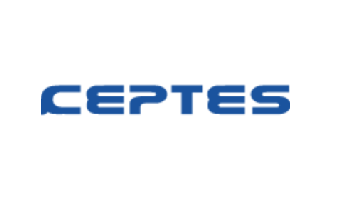As the world’s #1 CRM provider, Salesforce is being used by businesses of all sizes and from varied industries. Salesforce offered solutions are enabling service providers to connect with their customers in a whole new way. Salesforce is one of the best platforms for marketers in order to automate their entire marketing process and engage their customers in a superior way. However, a wide range of offered platforms sometimes may bring a little chaos in the minds of the marketers while choosing the best one that can serve their exact needs.
Here, we are going to talk about two such Salesforce offered marketing automation platforms that could make the adoption a bit tough for a marketer. These two highly impactful marketing automation platforms are Marketing Cloud & Pardot. Both of these platforms are highly efficient and have the features to light up your marketing efforts. However, both Pardot & Marketing Cloud have built for different purposes and have some significant differences. A marketer has to evaluate which one their business needs. Before having a detailed discussion, let’s first understand what is Pardot & Marketing Cloud.
Marketing Cloud
Salesforce Marketing Cloud offers a powerful set of tools built on a unified platform for B2C companies to identify their customers, engage them, and personalize their experiences. Marketers can deliver personalized customer journeys including outstanding experiences through various marketing campaigns across multiple channels such as email, mobile, social, advertising, web and more. Highly efficient Marketing Cloud features help marketers deliver the right message at the right time to the right audience managed from one place and later track results.
Pardot
Pardot is a Salesforce offered marketing automation tool designed for B2B companies in order to execute and manage leads as well as marketing campaigns. Pardot is vastly considered as a leading email marketing tool.
Key Differences
The prime difference between Pardot & Marketing Cloud is, both of these platforms are specifically built for different types of businesses. While Pardot is designed specifically for business-to-business (B2B) marketing, Marketing Cloud is designed for B2C marketers. This principal difference may give you a hint on which one is right for your business. An in-depth understanding of these two tools will clear uncertainties while selecting a marketing automation tool for your business.
Apart from this, there are some other key differences between Pardot & Marketing Cloud. Pardot is being primarily used for channels such as Email & Social; while Marketing Cloud is being used for channels such as Email, Social, SMS, and Display Advertising. While Pardot is not very industry specific, Marketing Cloud can be best used for industries such as Retail, FMCG, health & beauty, travel & leisure, healthcare, etc.
Key Feature Differences
Pardot Features
B2B companies use Pardot to send scheduled email campaigns and leverage automation techniques such as drip campaigns that help them generate more leads. B2B marketers usually don’t rely much on social media campaigns or content based campaigns. So, Pardot is the right tool for them as it requires lesser integrations and offers dynamic features including visitor tracking, real-time sales alerts, leads scoring, lead alignment, auto lead assignment, forms & landing pages, email marketing, dynamic content, closed-loop reporting, etc.
Marketing Cloud Features
While B2C companies use Marketing Cloud in order to run scheduled email campaigns leveraging drip campaigns as well as uses more functional email services such as transactional emails and triggered emails. As B2C marketers rely more on social media campaigns and content-based campaigns, Marketing Cloud is more useful for them as it offers seamless integrations with external systems. Apart from this, Marketing Cloud offers some of the best features such as Drag-and-drop segmentation, 1:1 content personalization, CRM and cross-channel integration, Comprehensive, real-time tracking and reporting, Pre-built templates and themes, Deliverability tools, Email Marketing, Marketing Automation, Predictive Intelligence, Customer Data Platform, etc.
There are a few common myths circle around Pardot. Let’s debunk them.
- Pardot is a part of Marketing Cloud – This is not true. These two are different products for different nature of businesses.
- Pardot is an email marketing tool – Partially true. Through most of the B2B companies use Pardot for email marketing, this is not only an email marketing tool.
- Pardot is for smaller businesses – Not at all. B2B companies of all sizes can use it.
- Either ‘Pardot’ or ‘Marketing Cloud’ – No. This is not a choice. As we already said, these two are two different solutions.
You can further ask yourself these questions to direct you in the right direction.
Are you a B2C business?
Yes: Marketing Cloud is your option.
Is your business mainly driven by e-commerce?
Yes: Marketing Cloud is your option.
Is your sales process driven and influenced by sales representatives/ ‘high-touch’?
Yes: Pardot is your option.
Is your sales process managed through Salesforce Opportunities?
Yes: Pardot is your option.
Conclusion
We believe after going through this article, you got a comprehensive idea on Pardot & Marketing Cloud and which one is best for your business. As a Salesforce Silver Consulting Partner, CEPTES is a market leader in offering end-to-end Salesforce solutions including Salesforce Cloud services, Salesforce analytics services, Lightning Solutions, App Development and more to businesses of various sizes. Our certified Salesforce resources can help you implement, integrate, migrate, develop, enhance or support everything related to the Salesforce platform. We have been the first choice partner for many organizations when it comes to implementing Salesforce Marketing Cloud and Pardot for many years now. Get in touch with us to know more.







